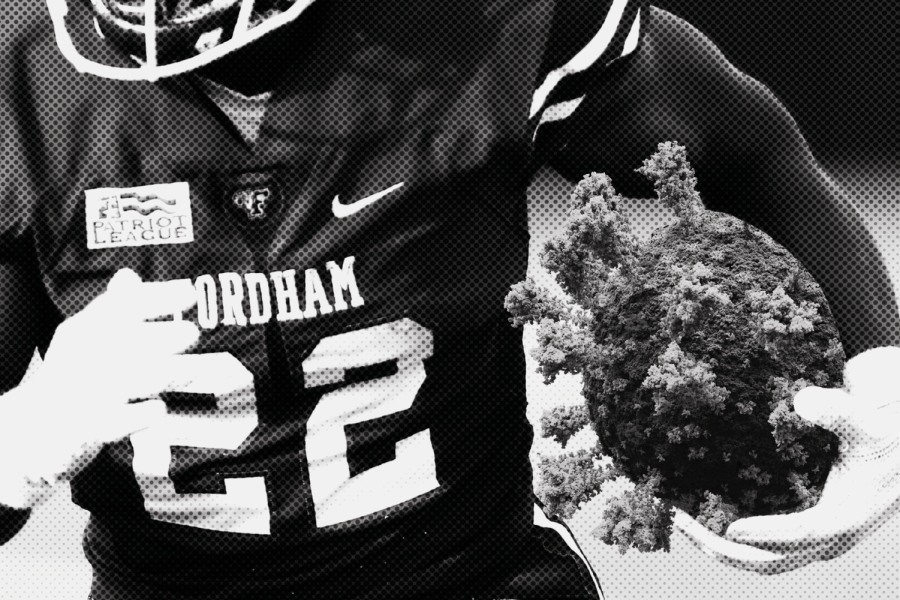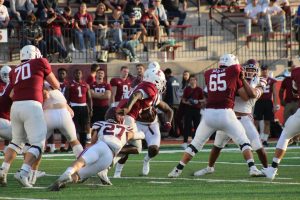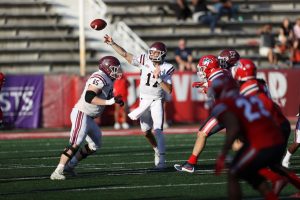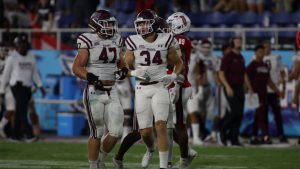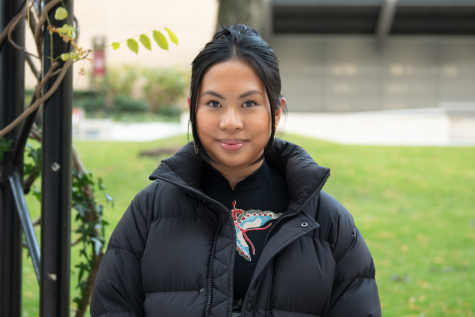Athletic Director Kull Prepared With COVID-19 Contingencies
Ed Kull, Director of Intercollegiate Athletics, is determined to continue a safe return to normalcy with more fans attending games and fuller travel schedules for teams.
October 5, 2021
A recent resurgence of COVID-19 at Fordham may threaten the university and in-person activities in the fall 2021 semester, but one man remains undeterred. Even as case numbers across all campuses peaked at 57 on Sept. 20, Director of Intercollegiate Athletics Ed Kull remains steadfast in his efforts to provide a safe return to normalcy for Fordham athletes.
“In essence, we’re still kind of living in our bubble, trying to protect that,” Kull said. “I’d love to tell you it’s foolproof, but I’m confident that we’re doing everything possible.”
In his first full semester as director, Kull has prepared the athletic program for a full return to normal operations largely in line with the university’s Fordham Forward guidelines. As students return to in-person classes with an indoor mask mandate, the athletic department has rolled back restrictions on fan attendance at home games and is pursuing more ambitious travel schedules for its athletic teams.
“When we traveled to Nebraska, traveled to Florida, we’re testing the entire travel party.”Ed Kull, Director of Intercollegiate Athletics
This fall, the football team has already traveled to Nebraska and Florida for events that would have been non-starters earlier this year. Kull is adamant that the department is doing everything it can to keep players safe while also giving them the full experience of being student athletes.
“When we traveled to Nebraska, traveled to Florida, we’re testing the entire travel party, which are steps that are pretty aggressive, even more aggressive than the rest of the campus,” Kull said.
Like many of the new guidelines at Fordham, Kull and the department’s plans for a normal year for athletes have been made possible by effective vaccine mandates.
“Mandated vaccinations are not foolproof; we’re seeing positives and we know that some of those must be vaccinated individuals.”Ed Kull
Just as the possibility of in-person instruction at Fordham is a direct result of a 98.76% vaccination rate among undergraduates, student athletes are now able to return to normal activities on a similar basis.
According to Kull, exempt student athletes in the Atlantic 10 (A10) Conference must be tested three times a week. For nonconference competitions, Kull said that both Fordham and the opposing school must confirm in writing that all athletes have either been vaccinated or sufficiently tested before any game can take place.
But while widespread vaccination efforts have inspired Fordham officials to loosen restrictions across many departments, the number of COVID-19 cases steadily rose in the first month. Between Sept. 13 and Sept. 23, the number of cases more than doubled from 21 to 57, the most since April 11. Though there have been no reported outbreaks among any athletic programs, Kull expressed interest in preparing for breakthrough cases in an effort to keep his athletes safe.
“Mandated vaccinations are not foolproof; we’re seeing positives and we know that some of those must be vaccinated individuals,” Kull said. “But when we travel to an institution that is not fully vaccinated, we’re testing.”
Though the athletic department’s involvement with the general student body does not extend far beyond fan engagement, the presence of fans at sporting events has been one of the most noticeable changes on campus this semester. Kull said that it was a welcome return for fans and athletes alike, but home court advantage remains second priority to public health.
Should conditions at Fordham worsen to a point which the administration or the state government deems unsafe, Kull said the athletic department was prepared to cooperate and reenact restrictions on fan attendance.
In the past year as interim director, Kull repeatedly had to act in accordance with state guidelines, even when it was inconvenient. Notably, he had to oversee the pause of women’s basketball operations for two weeks on Feb. 12, a week before his promotion to director.
The 2019 conference champions were preparing for another run in the A10 Tournament, but went on to lose in the quarterfinal on March 12 in their second game back from the break. There were no positive cases on the team itself, but a high case number among the general student body necessitated a campus-wide shutdown, and Kull had no choice but to enforce the restrictions for all athletic programs.
Though uncertainty about the pandemic dangerously persists in the wake of loosening restrictions, the athletic director has repeatedly demonstrated a willingness to sacrifice the usual benchmarks of success to ensure his players’ safety. Time will tell if stricter measures are required.

